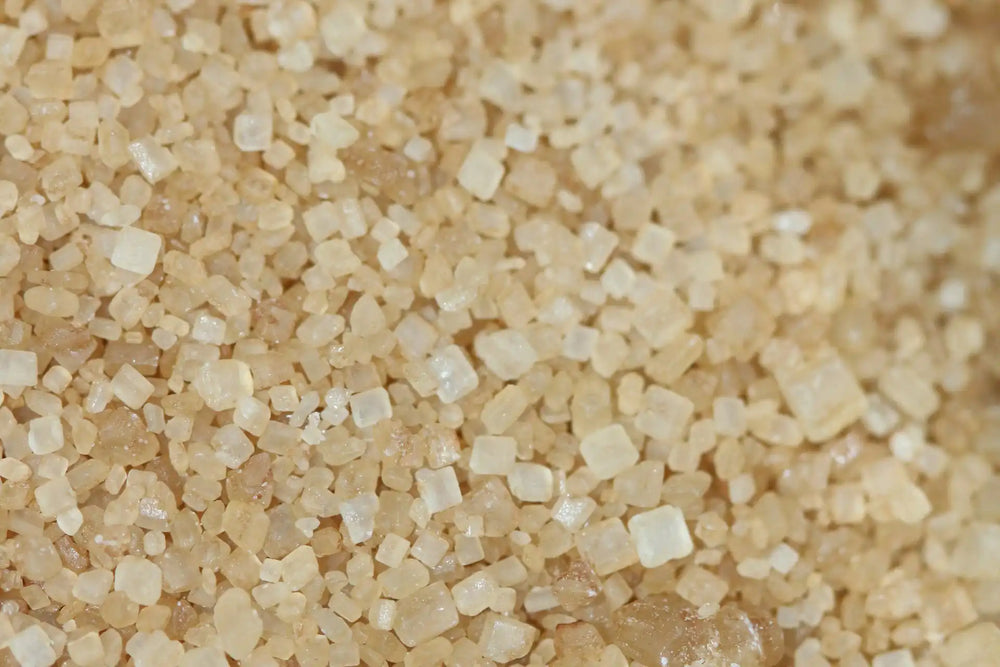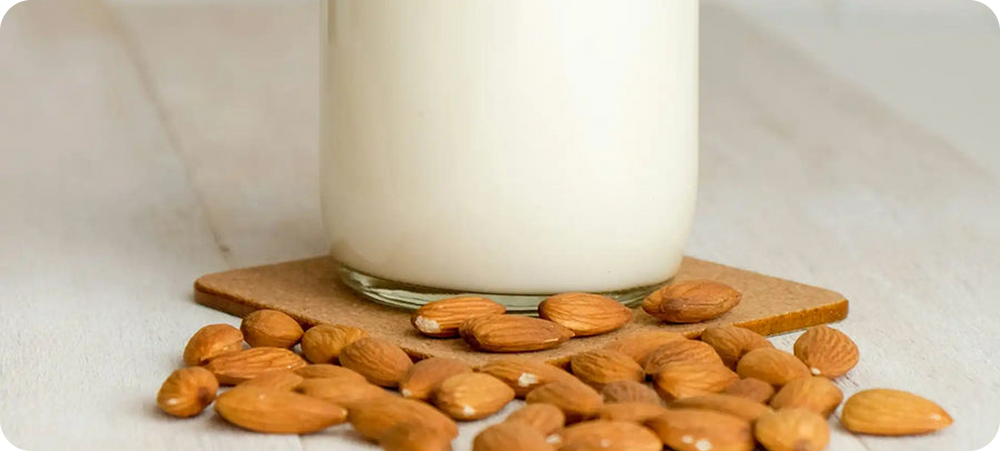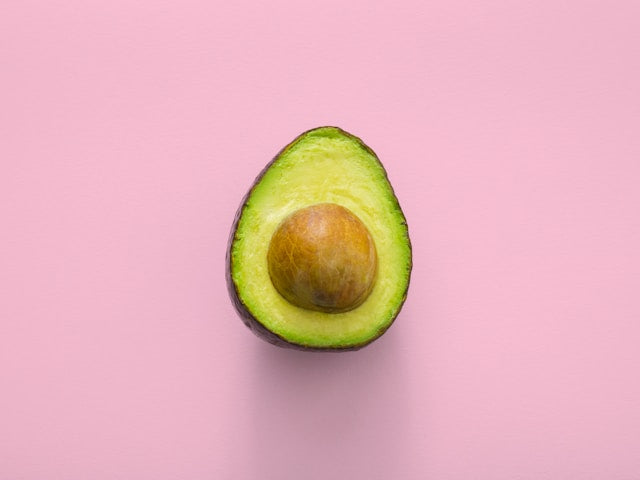
Have you ever considered baking that delicious cake but run out of butter? Or are you trying to stick to your vegan lifestyle without compromising the taste and texture of your favorite baked goods? Well, you're in luck! There's a whole world of vegan butter substitutes waiting to be explored.
The options are endless, from coconut oil to applesauce. Each one brings a unique flavor and texture to your dishes, making them just as tasty, if not tastier, than their non-vegan counterparts. Whether you're a seasoned vegan baker or just starting, this guide will help you navigate the best vegan butter substitutes for baking. Let's get started and make your baking experience a breeze.
What Is A Coconut Oil
As you investigate your vegan baking journey further, you'll encounter a gem of a substitute: coconut oil. Unrefined, extra-virgin options are praised for their rich coconut flavor. But if you're not keen on the taste or your recipe needs to harmonize with coconut, refined coconut oil is a fantastic swap. It provides the much-needed fat for your baked creations but has a neutral flavor.
|
Unrefined Coconut Oil |
Refined Coconut Oil
|
|
|---|---|---|
|
Taste |
Rich, coconutty |
Neutral |
|
Nutritional Value |
Less processed, more nutrients |
More processed, fewer nutrients |
|
Best Used in |
Coconut-based recipes |
Any type of recipe |
After choosing which coconut oil suits your recipe, it's crucial to use it correctly. Sudden temperature changes can cause it to clump. Hence, make sure it's at the right temperature before integration. If a recipe asks for solid butter, use firm coconut oil and use a liquid form.
Coconut oil's high-fat content makes baked goods moist and rich. That's why vegan brownies and practically any other dough-based desserts love it. These qualities make the oil invaluable in your vegan kitchen. You may wonder how different ingredients interact with and pair with coconut oil. Stay tuned as we explore these combinations.
Why Choose Avocado Substitutes For Baking
After a deep dive into coconut oil and its versatility, it's time to turn your attention to another potent vegan butter substitute—avocado. Rich and creamy, this fruit is a powerhouse of nutrients and a cherished ingredient in vegan baking. But why avocado? What makes it stand out among the plethora of plant-based alternatives?
You might think of avocado as a component of your favorite toast or salad. Yet, it plays a much more significant role in vegan baking. Avocado possesses a lovely, mild flavor that's easy to mask with other ingredients. It doesn't contribute a distinct taste, allowing other flavors to shine in your recipe.
Avocado's creamy texture sets it apart. Its consistency makes it an excellent one-to-one substitute for butter. That's right! Whether baking cookies or a loaf of banana bread, you can use the same amount of avocado as butter.
What about the nutrients, though? The good news is that avocado is packed with healthy fats, fibre, and vitamins. Remember, vegan baking is not only about replicating texture and taste. It's about crafting recipes with intelligent ingredient swaps, transforming traditional baking norms into healthier alternatives without compromising texture or taste.
One thing to note when using avocado: be ready for a slight shift in your bake's color. Avocado can give your bakes a greenish hue. It might only affect some bakes, but it's worth mentioning. Don't worry, though! Your baked goods will still be just as delicious, and hey, who doesn't want a fun splash of color in their treats?
Why Choose Nut Butters For Vegan Butter Substitute
Transitioning from avocados, nut butters are another popular vegan butter substitute. These creamy mixtures are obtained by grounding nuts into a paste. Commonly used variants are almonds, cashews, and peanut butter. But if you're feeling adventurous, there's a whole world of nut butter possibilities to explore!
One key benefit of nut butter is their protein content. They add flavor, moisture, and a significant protein boost to vegan baked goods. This is particularly crucial for vegans, as ensuring adequate macronutrient intake can sometimes be challenging.
But bear in mind nut butter has a distinct taste. For example, if you choose almond butter, your baked goods will have a hint of almond flavor. If that aligns with your recipe, great! If not, consider a less dominant alternative.
While nut butter slightly modifies the texture of your pastries, it contributes to a dense, rich crumb that many people find delightful. They're excellent in recipes with a thick texture, like brownies or nutritious bars.
In addition to their culinary uses, nut butter is heralded for its health benefits. It's packed with healthy fats, vitamins, and minerals that enhance the nutritional profile of your vegan treats. So, with every bite of your nut butter-enriched pastries, you're not just enjoying a delicious treat, but you're also nourishing your body.
Next, let's venture into uncharted territory for many—vegetable purees! You'd be surprised by their vital role in vegan baking.
Why Choose Aquafaba
You may wonder, what on earth is aquafaba? Here's your primer: Aquafaba is the liquid you find in a can of chickpeas. Surprisingly, it's a brilliant addition to any vegan baker's pantry. While not a traditional vegan butter substitute, it brings unique advantages to your vegan baking experience.
First, aquafaba is excellent for leavening. Impressively, three tablespoons of aquafaba equate to approximately one whole egg. Remember this when you adjust your recipes. Let's put it into perspective:
Though it lacks the fat content found in other substitutes, aquafaba compensates by adding impressive structure and lift to a wide range of bakery goods, such as meringues, cakes, and cookies. Bonus: it's almost flavorless, which means your treats will retain their authentic tastes.
Next on our list are vegetable purees. An exciting vegan alternative to butter, they not only keep baked goods moist but also infuse them with additional nutrients. Stay tuned to find out how.
Conclusion
In conclusion, exploring vegan butter substitutes for baking opens up a world of possibilities for both seasoned and novice bakers alike. From coconut oil to avocado, nut butters, and even aquafaba, each option brings its own unique flavor, texture, and nutritional benefits to your baked goods. Whether you're looking to replicate the richness of butter in your vegan desserts or simply want to experiment with healthier alternatives, there's a vegan butter substitute out there to suit your needs.
By understanding the characteristics and uses of each substitute, you can confidently navigate your vegan baking journey and create delicious treats that rival their non-vegan counterparts. So whether you're whipping up a batch of cookies, baking a cake, or crafting the perfect pie crust, don't hesitate to get creative with these versatile vegan butter substitutes. Your taste buds—and the planet—will thank you for it!
Frequently Asked Questions
What is Aquafaba?
Aquafaba is the liquid left over from cooked chickpeas. Due to its excellent leavening properties, it is often used as a vegan substitute for butter and eggs in baking.
How is Aquafaba used as a vegan butter substitute?
Aquafaba can replace butter in many baking recipes. It serves as a leavening agent, providing structure and lift to baked goods like cakes, meringues, and cookies.
Which baked goods can benefit from Aquafaba?
Various baked goods, such as meringues, cakes, and cookies, can significantly benefit from aquafaba due to its leavening properties and ability to provide structure to these products.
Are vegetable purees also an excellent vegan butter substitute?
Yes, vegetable purees are notable vegan butter substitutes. They can keep baked goods moist, enhance their flavour, and increase their nutritional value.
FAQ
The vegan milks highlighted in this article are coconut, oat, soy, and almond milk.
Related posts
-

What Is The Difference Between...
When it comes to sweetening your morning coffee or baking your favorite dessert, you've likely re...
-

What Are The Best Vegan...
You're a baking enthusiast, but you recently turned vegan. Now you're wondering how to replace th...
-

Top Vegan Butter Substitutes for...
Have you ever considered baking that delicious cake but run out of butter? Or are you trying to s...



